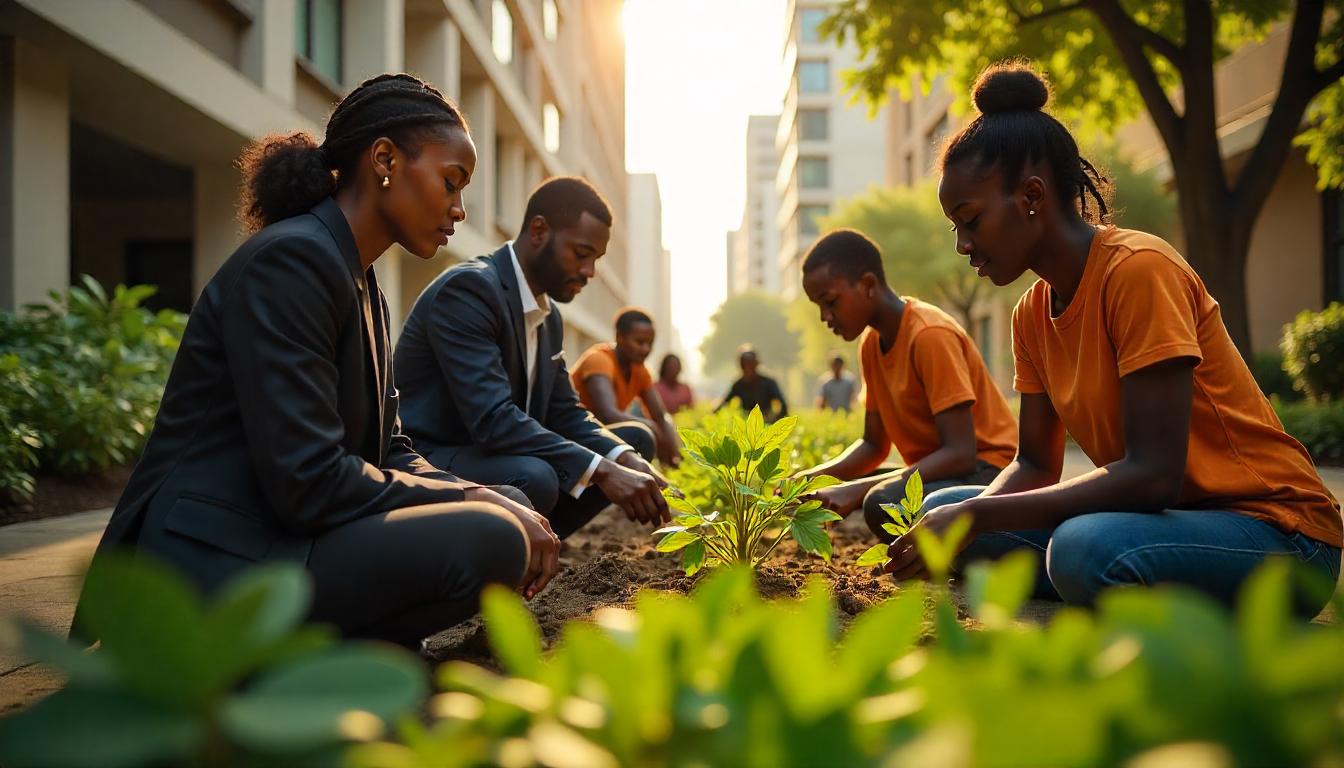
In Africa’s rapidly urbanizing cities, projects often prioritize profit over people. Yet, true success lies in creating long-term value for communities and the environment. At Castleberry Project Management Consulting Limited, we’ve woven Corporate Social Responsibility (CSR) into every project lifecycle, ensuring our work leaves a legacy beyond deliverables.
From greening urban spaces during infrastructure projects to partnering with NGOs on environmental initiatives, Castleberry’s CSR strategy is rooted in sustainability, inclusivity, and alignment with global goals like the UN Sustainable Development Goals (SDGs) and Nigeria’s Vision 2050.
1. CSR in Project Management: A Win-Win for Businesses and Society
CSR isn’t just about compliance—it’s a strategic asset. For African organizations, integrating CSR into projects offers:
- Enhanced Reputation: Demonstrates ethical leadership and community commitment.
- Stakeholder Trust: Builds stronger relationships with local communities, governments, and investors.
- Regulatory Compliance: Aligns with national policies (e.g., Nigeria’s National Environmental Standards and Regulations Enforcement Agency).
At Castleberry, we go beyond generic CSR by embedding localized, impactful initiatives into every project. Whether it’s a road expansion in Lagos or a healthcare facility in Abuja, CSR is a core component of our Duration-Driven Methodology.
2. Castleberry’s CSR Focus: Environmental Landscaping and Beyond
Our CSR strategy prioritizes environmental sustainability, with a focus on landscaping and green infrastructure. Here’s how we do it:
Step 1: Discover
- Audit the project’s environmental impact and community needs. For example, a construction project might disrupt local ecosystems, while a tech hub could lack green spaces.
Step 2: Solution
- Design CSR initiatives tailored to the project context:
- Environmental Landscaping: Integrate green spaces, tree planting, and rainwater harvesting systems.
- Community Engagement: Partner with local NGOs to involve residents in greening efforts.
- Skill Development: Train youth in sustainable landscaping techniques to create job opportunities.
Step 3: Implementation
- Embed CSR into project timelines and budgets. For instance, allocate 5% of a construction project’s budget to post-completion landscaping.
Partnerships for Impact:
- Collaborate with organizations like the World Economics Association (UK) and Project Finance Institute (UK) to amplify CSR reach.
- Leverage CEO Ayodele Thomas’ expertise in public-private partnerships (PPPs) to align CSR with government priorities.
3. Case Study: A Lagos Office Complex with Integrated Green Spaces
Client Challenge:
A multinational corporation commissioned a new Lagos headquarters but faced criticism for displacing a community garden.
Castleberry’s Solution:
- Redesigned the project to include:
- A vertical garden on the building’s façade.
- A public park adjacent to the office, funded by the client.
- Training for 20 local youths in sustainable landscaping.
Results:
- Reduced carbon footprint by 25% through green infrastructure.
- Improved community relations: The park became a neighborhood asset, boosting the client’s reputation.
- Job creation: Trained youth were hired for ongoing maintenance.
Conclusion
At Castleberry, CSR isn’t an afterthought—it’s a strategic pillar. By integrating sustainability into project management, we ensure clients deliver socially responsible outcomes that benefit communities, enhance brand equity, and align with global standards.
Ready to build projects that leave a lasting legacy? Partner with Castleberry to design CSR initiatives that drive success for your organization and the communities you serve.
FAQ Section
Q: How do you measure CSR impact?
A: Through KPIs like reduced emissions, community employment rates, and stakeholder satisfaction surveys.
Q: Can CSR align with tight budgets?
A: Yes! We identify cost-effective initiatives, such as repurposing construction waste for community projects.
Q: What other CSR areas do you support besides landscaping?
A: We also focus on education access (e.g., building school libraries) and healthcare partnerships (e.g., funding mobile clinics).
